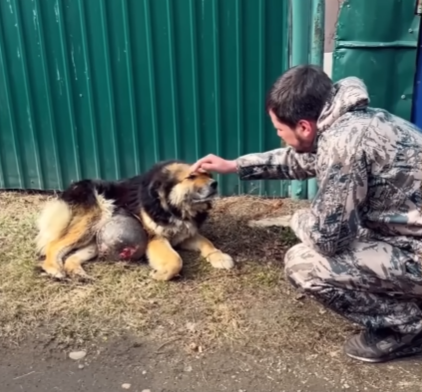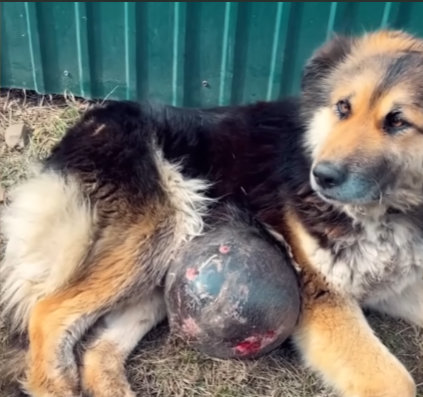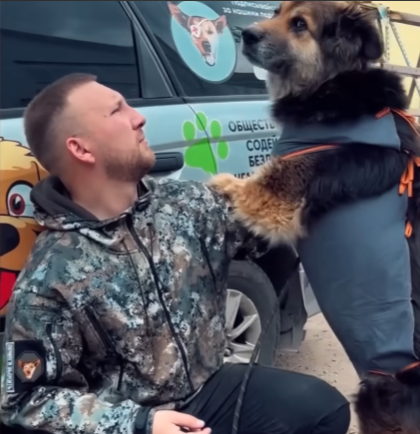
The evening sun had barely dipped below the horizon when the sound reached me — soft, broken sobs carried on the cool autumn wind. I paused, the basket of fresh bread still in my hands, and listened. The sound came again, fragile and trembling, like a wounded animal trying not to be heard. My heart sank. I knew that voice.
It was Daniel’s.
Daniel had always been the light of our village — the boy with the warm smile, the gentle laugh, and eyes that held more kindness than most people could understand. We’d grown up together, chasing fireflies and skipping stones across the river that curled lazily behind our houses. Even when we grew older and life grew heavier, Daniel never lost that quiet gentleness that drew everyone to him.
But that was before the accident.
It had been nearly a year since the day everything changed — the day his younger brother, Noah, drowned in that same river we once played beside. No one blamed Daniel, but he blamed himself. He had been the one watching Noah that afternoon. He’d turned away for just a moment to tie his boot, and when he looked back, Noah was gone.
They found the boy’s body downstream hours later. Daniel had not spoken for days after that. And when he finally did, his voice was not the same. It carried something heavy — something broken.
I thought time would heal him. Everyone did. But grief doesn’t always fade. Sometimes it grows roots.
That evening, I followed the sound of his sobs to the old shed behind his house. The door was half open, and through the narrow crack, I saw him kneeling on the ground. His shoulders were shaking, his hands clutching something small and silver — Noah’s pendant. The one he used to wear everywhere.
Daniel’s face was pale and streaked with tears. His lips trembled as he whispered, “Please… please just make it stop. I can’t do this anymore. I can’t carry it. I just want to be free.”
The words tore through me like a knife.

I pushed the door open gently, but the sound still startled him. He turned, eyes red and wide, caught between shame and pain. For a long moment, we just looked at each other. Neither of us spoke.
“Daniel…” I said softly, stepping closer. “You don’t have to face this alone.”
He shook his head, his breath uneven. “You don’t understand, Lily. You can’t. I killed him.”
“No,” I whispered, kneeling beside him. “It was an accident. Everyone knows that.”
But he wouldn’t look at me. “I was supposed to protect him,” he said, his voice cracking. “He trusted me. And I let him die.”
His words hung in the air like ghosts. I could see the pain in his eyes — raw, consuming, endless. He wasn’t just grieving. He was trapped inside his guilt, punishing himself every day for something he could never change.
He pressed the pendant against his chest, trembling. “Every time I close my eyes, I see him. Calling my name. Asking for help. And I wasn’t there.” His voice broke into a sob. “I wasn’t there!”
I couldn’t hold back my tears anymore. They came quietly, falling down my cheeks as I reached for him. He resisted for a moment, but when I wrapped my arms around him, he collapsed into me, shaking like a child. His cries echoed in that small shed — cries of agony, guilt, and desperate longing.
For hours, we stayed like that. I held him as he wept, my heart breaking for the boy who once smiled at every sunrise, who now could barely face another day.
When his sobs finally quieted, he spoke again, his voice hoarse. “Do you think… he forgives me?”
I looked at him, tears blurring my vision. “I know he does, Daniel. Noah loved you. He’d never want you to suffer like this.”

He stared at the pendant for a long time. “Then why can’t I forgive myself?”
Because grief doesn’t ask permission. Because guilt doesn’t need truth to grow. Because love — when it’s taken away too soon — leaves behind a wound that time alone can’t close.
The next few weeks were slow, fragile. Daniel didn’t leave his house much, but I visited every day. Sometimes we talked; sometimes we sat in silence. I brought food, books, anything to make the world feel normal again.
One day, I found him by the river. He was standing on the bank, staring at the rippling water where it had all happened. I froze, afraid of what he might be thinking. But when he turned to me, his face was calm.
“I come here every day now,” he said softly. “At first, I thought it would hurt too much. But I think… I needed to face it.”
He knelt and placed a small bunch of wildflowers at the edge of the water. “I talk to him sometimes. I tell him about the days. About the things I wish I could’ve said. It doesn’t take the pain away, but… it feels like he’s still listening.”
I smiled faintly, tears threatening again. “Maybe he is.”
He looked up at the sky, his eyes filled with quiet sorrow and something else — peace, perhaps, or the first faint trace of it. “For so long, I asked to be freed from this pain,” he said. “But I think freedom doesn’t mean forgetting. Maybe it means learning to live with the memory… without letting it destroy you.”
His words stayed with me.
That evening, as we walked home together, I realized I hadn’t seen him smile in months. But as the wind carried the scent of pine and earth, I caught the smallest glimpse of it — faint, hesitant, but real.

Months passed, and winter came again. The snow covered the river in silence. Daniel began to help the local carpenter rebuild fences and mend roofs. He started talking to people again, helping neighbors, playing his guitar at the Sunday gatherings.
He still carried the pendant — always tucked into his shirt, close to his heart. He still had bad days. There were times I’d find him sitting alone, eyes distant. But the difference was this: he no longer begged for the pain to end. He had learned to live with it.
One evening, as the church bells rang in the distance, he turned to me and said, “You know, I thought I’d never laugh again. I thought I didn’t deserve it. But maybe… maybe life doesn’t take away our right to be happy, even after tragedy. Maybe it’s a way to honor the people we’ve lost — by finding joy again.”
I smiled through tears. “He’d want that for you, Daniel.”
He nodded, looking toward the horizon. The last rays of sunset painted the sky gold. “And for the first time,” he said quietly, “I think I believe that.”
Looking back now, I realize that night in the shed changed both of us. I had seen grief before, but never like that — never so raw, so consuming. Watching him cry, hearing him plead to be freed from his pain, broke something inside me. But it also taught me something I’ll never forget.
Pain doesn’t disappear when we hide from it. It softens only when it’s shared, when someone stays beside you through the storm and reminds you that even shattered hearts can still beat.
And Daniel — once lost in guilt and sorrow — found his way back, one fragile day at a time.
Sometimes, when the evening sun touches the river just right, I see him sitting there, strumming his guitar softly, eyes calm. The wind carries his music across the water — a song of forgiveness, of memory, of healing.
And every time I hear it, I feel the tears return. But this time, they’re not from sorrow. They’re from the quiet, aching beauty of watching someone rise again after being broken — from knowing that even the deepest wounds can bloom into strength.
Because sometimes, the greatest freedom doesn’t come from escaping pain.
It comes from learning how to live — and love — through it.


